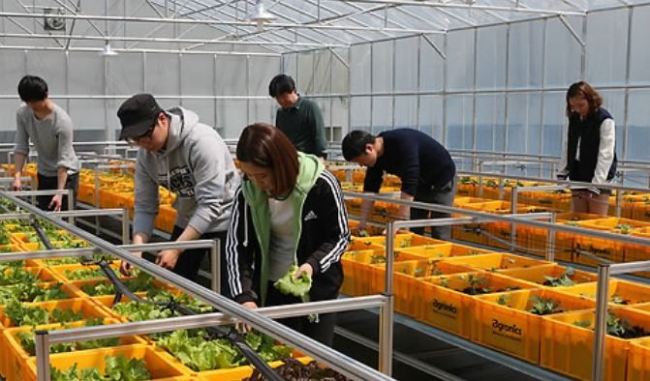South Korea will step up efforts to spread advanced agricultural technology and share farming expertise with developing nations to help them tackle food shortages, a state agency said Tuesday.
The Rural Development Administration under the agriculture ministry has developed and shared agricultural technologies customized to developing nations through partnerships with local research institutes.
The Korea Program on International Agriculture centers have been established in 20 nations in Asia, Africa and Latin America, with 10.9 billion won ($9.73 million) set aside for this year's projects.

Currently, researchers are developing technology in 46 items and working on 10 field demonstration projects in collaboration with local farmers, the RDA said.
"Rather than providing food to developing nations, we aim to improve the income of small-scale farms by providing advanced agricultural technology tailored to the local environment," Lee Kyu-seong, director general of RDA's technology cooperation bureau, said in a briefing. "We will also expand research and development cooperation with local institutes to help farmers solve their challenges."
In the Philippines, researchers have provided a high-quality rice variety to about 1,000 farm households, which increased productivity from 3.8 to 4.5 tons per hectare, the RDA said.
The KOPIA center in Cambodia provided a new broiler chicken breed to local farms to decrease their mortality rate from 15 percent to 4.4 percent and save on feeding costs.
It also supplied disease-free seed potatoes to 44 farms in Kenya, increasing quantity by 3.9 times and income by 4.4 times.
In Paraguay, researchers cultivated high-quality sesame seeds for 300 hectares of land to boost quantity by 37.5 percent, it noted.
Since its establishment in 2009, KOPIA has designed and implemented a total of 21 pilot villages in six different countries.
Once an aid recipient, Asia's fourth-largest economy has turned into an aid donor, helping the international community solve food problems in developing nations. (Yonhap)




![[Herald Interview] 'Amid aging population, Korea to invite more young professionals from overseas'](http://res.heraldm.com/phpwas/restmb_idxmake.php?idx=644&simg=/content/image/2024/04/24/20240424050844_0.jpg&u=20240424200058)

![[Pressure points] Leggings in public: Fashion statement or social faux pas?](http://res.heraldm.com/phpwas/restmb_idxmake.php?idx=644&simg=/content/image/2024/04/23/20240423050669_0.jpg&u=)













